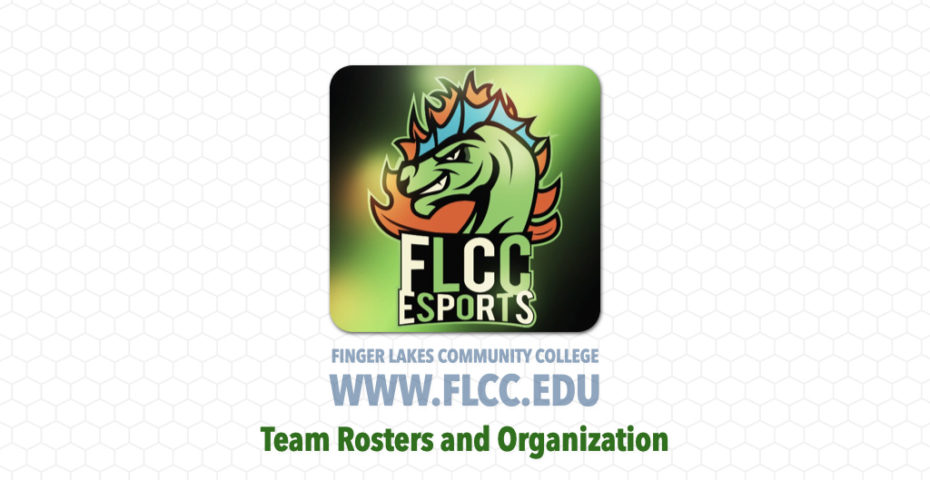eSports at FLCC – Team Rosters and Organization

(rev. 15 JULY 2020)
…
3.1 : “Varsity” Teams vs. “Intramural” Teams
3.1.1. : FLCC eSports operates under the purview of FLCC Athletics, a division of the FLCC Association. Currently, FLCC Athletics recognizes OVERWATCH as a Varsity eSport with the interest of formalizing additional eSports in the future. Varsity Overwatch is subject to additional requirements and oversight including all responsibilities and obligations made to all field sport participants at FLCC. All other eSports programs are recognized as “Intramural” programs, but are still subject to the same academic, legal, and social obligations that field-sport programs require. While “Intramural” programs lack a dedicated staff “Coach”, the eSports Director in cooperation with Student Team Managers are able to carry on the administrative duties of each program.
3.1.2 : The “Path to Varsity” – Currently, there is no set path for an “Intramural” team to become “Varsity-Sponsored” by FLCC Athletics. However, certain criteria have been established for future consideration. These criteria include an FLCC faculty or staff sponsor who will direct the program as Head Coach, consistent enrollment and involvement by Team Members, consistent academic performance and eligibility by team members and consistent collegiate competitive leagues in which to participate from year to year.
…
3.2 : FLCC and Collegiate League Roster Sizes
3.2.1 : Roster composition and team size are determined by independent collegiate league rules. For example, TESPA and ECAC both have similar roster size and composition requirements but implement them differently. However, these requirements have been known to change often. Teams may choose to train more students than are able to join a single collegiate league roster. This is permitted as long as league and non-league players are clearly identified and notified. This includes academically eligible, ineligible, support, and casual players.
…
3.3 : “Team / Squad” Subdivisions
3.3.1 : Program leadership may decide to split a large eSports team roster into “squads”. When possible, a single eSports team could field multiple squads in collegiate leagues. Each squad is permitted to have a “Squad Captain”, with rostered members, support members, and possibly casual members reporting to the Team Manager or Coach.
3.3.2 : If any FLCC eSports team is capable of fielding two or more collegiate competitive squads at the same time, it is recommended to follow the following naming policy. Please avoid using hierarchical systems such as “1 2 3 – A B C – Varsity – JV”, etc.
-
- FLCC “Program Name” Green
- FLCC “Program Name” Blue
- FLCC “Program Name” White
- FLCC “Program Name” Black
…
3.4 : Roster Roles
3.4.1 : Each rostered team member may be required to identify primary and/or secondary roles. Team members may be swapped out in between rounds or maps to fulfill the needs of each composition, depending on collegiate league rules and the discretion of program leadership. “Starters” and “Substitutes” may be formally identified by program leadership. It is recommended that every rostered team member plays equal time, regardless of role or rank, whenever possible, depending on program type. Team members are expected to coordinate and cooperate with the decisions made by the Team Manager or Team Captain.
…
3.5 : Roster Lock Periods
3.5.1 : Collegiate leagues and tournaments have “roster-lock” periods where new players can not fielded after the tournament begins. During those times, teams can not add new players to a league roster. Prospective team members may practice and observe team sessions with the permission of program leadership and may be added to FLCC rosters at any point during the season.
…
3.6 : FLCC Rosters vs. Collegiate League Rosters
3.6.1 : FLCC eSports program rosters may include Active Members, Support Members, and Casual Members. Active Members for those who are signed up for collegiate league play. Support Members who are involved in casting, streaming, social media, art, promotion, or other functions outside the scope of competitive gameplay but may not be eligible for play. Casual members for those who may enjoy playing the game, but are unable to participate in tournament play or other FLCC eSports activities. Roster roles are determined and assigned by program leadership, and Active, Support, and Casual Members are all subject to academic reports. However, most collegiate league programs do not make these kinds of roster distinctions, so only Active Members should be listed on collegiate tournament rosters whenever possible.
…
3.7 : Roster Resignation and Dismissal
3.7.1 : Students may choose to resign from an FLCC eSports roster at any time. However, students will be reminded of the repercussions of their resignation including lost potential for recommendations, lost recognition for program success, and possibly the inability to join another collegiate competitive roster at a later time.
3.7.2 : For more information about FLCC eSports Dismissal policies, please see [Section 10: FLCC Student, Athletics, eSports Code of Conduct and Student Behavior].
…
3.8 : Non-FLCC Student Participation in eSports Programs
3.8.1 : At this time, FLCC eSports can not add non-students or “alumni” to FLCC Rosters or Collegiate League Rosters. Non-students may not participate in practices, matches, leagues, or tournaments. Non-students may not use FLCC eSports spaces or equipment. However, special events or programs may modify this rule to allow participation by the general public. This is granted on a case-by-case basis by program leadership.


You must be logged in to post a comment.